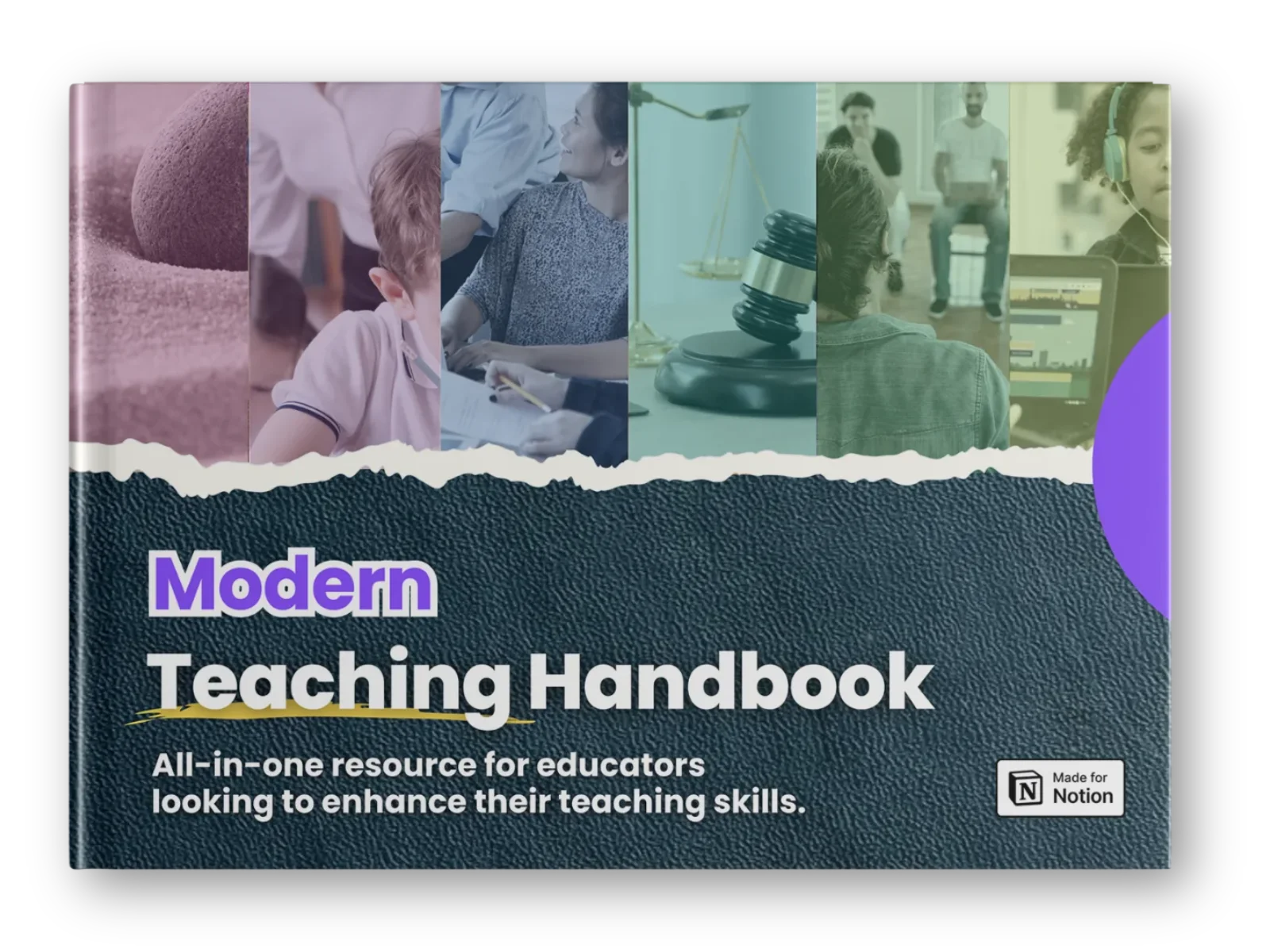

Spiritual Growth and Academic Success: Is There a Correlation?
Spiritual Growth and Academic Success: Is There a Correlation?
Spiritual Growth and Academic Success: Is There a Correlation?


Article by
Milo
ESL Content Coordinator & Educator
ESL Content Coordinator & Educator
All Posts
In a world that is increasingly obsessed with competition and status, academic achievement is often seen as the key indicator of a person's worth and future success. However, an aspect of development all too frequently ignored — spiritual development — may have important implications for academic achievement as well. Though traditionally seen as separate areas, new research and real-world observations suggest that spiritual growth and academic achievement might be more linked than previously believed. This article will examine how these two aspects of human development might be correlated through important perspectives, empirical data, and implications for students and educators.

In a world that is increasingly obsessed with competition and status, academic achievement is often seen as the key indicator of a person's worth and future success. However, an aspect of development all too frequently ignored — spiritual development — may have important implications for academic achievement as well. Though traditionally seen as separate areas, new research and real-world observations suggest that spiritual growth and academic achievement might be more linked than previously believed. This article will examine how these two aspects of human development might be correlated through important perspectives, empirical data, and implications for students and educators.

Modern Teaching Handbook
Master modern education with the all-in-one resource for educators. Get your free copy now!

Modern Teaching Handbook
Master modern education with the all-in-one resource for educators. Get your free copy now!

Modern Teaching Handbook
Master modern education with the all-in-one resource for educators. Get your free copy now!

Defining the Terms
To evaluate the link between spiritual development and academic achievement, it is essential to articulate both terms clearly. Spiritual growth is the journey of learning more about oneself, one's purpose, values, and relationship with something bigger than oneself, be it God, the universe, meditation, or just pure personal reflection. While it may not have much to do with practicing any faith in particular, attending the best Christian high schools in the U.S., or even going to church regularly, it is about cultivating an inner life and a moral compass.
Academic success, by contrast, is most often measured by grades, test scores, graduation rates, and academic performance. This encompasses cognitive abilities, motivation, discipline, and emotional intelligence — all of which can be shaped by a student's spiritual state.
The Case for a Correlation
Holistic education advocates believe that spiritual balance positively impacts a student's academic path. Here are some of the ways that this connection plays out.
Improved Emotional Control and Mental Clarity
Communal practices like meditation, prayer, and mindfulness can lessen anxiety and improve emotional regulation. Such practices encourage greater focus, patience, and resilience in students, all of which are key components to academic success.
Mindfulness for Better Academic Achievements
Academic performance is closely linked with attention and stress levels, and a 2014 study indicated that practicing mindfulness exercises regularly helps students achieve superior academic habits through better attention and lower stress levels.
More Motivation and a Sense of Purpose
For students, the feeling of purpose can be a strong motivator. A spiritually grounded student might see education not just as a means toward a job but as an opportunity to serve others, achieve personal growth, or apply a calling. This internal drive can carry them through academic struggles and help them focus on the outcome rather than temporary challenges.
Better Ability to Connect With Others
A spiritually mature person is usually more kind-hearted, collaborative, and loving. Such a learning approach and an optimistic worldview promote collaboration and minimize conflicts in the classroom. Trusted relationships with peers and teachers are associated with higher academic engagement and better performance.
Increased Self-Discipline
Virtually all spiritual traditions place value on self-control, accountability, and perseverance. These same habits lead to academic success: consistent study and preparation, appropriate time management, and identifying and achieving long-term goals. Spiritual growth helps you develop inner strength to be disciplined and consistent, regardless of how far away you are from your current goal.
Counterarguments and Aspects to Consider
Although most data and research studies prove there is a positive correlation, they must be approached with caution.
Correlation Is Not Causation
The fact that spiritually engaged students tend to have higher academic performance does not imply that spiritual growth leads to academic success. Perhaps both are shaped by some third factor, like a healthy home life or a supportive community.
Potential for Dogmatism or Distraction
Spiritual beliefs can often conflict with academic learning, primarily in science or social studies. Spirituality taught this way is rigid and dogmatic, discouraging critical thinking or open inquiry. It is important to maintain a balanced perspective, as too much time spent on religious ideas can distract from one's studies.
Variability by Culture and Individual
Some students do not need spirituality, and no education system should depend on turning them toward spirituality. For some people, other paths of self-development — through sports, for example, or art and activism — can replicate those benefits. So, letting people have their own paths toward personal growth is important.
Final Thoughts
The idea that spiritual growth and academic performance go hand in hand is not just plausible but backed up by evidence. While more research is needed to highlight causal mechanisms, it is clear that developing our inner landscape will have profound educational implications. Spiritual well-being at every level of academic life may turn out to be the most valuable gift our increasingly stress-ridden and complex world requires of us.
Defining the Terms
To evaluate the link between spiritual development and academic achievement, it is essential to articulate both terms clearly. Spiritual growth is the journey of learning more about oneself, one's purpose, values, and relationship with something bigger than oneself, be it God, the universe, meditation, or just pure personal reflection. While it may not have much to do with practicing any faith in particular, attending the best Christian high schools in the U.S., or even going to church regularly, it is about cultivating an inner life and a moral compass.
Academic success, by contrast, is most often measured by grades, test scores, graduation rates, and academic performance. This encompasses cognitive abilities, motivation, discipline, and emotional intelligence — all of which can be shaped by a student's spiritual state.
The Case for a Correlation
Holistic education advocates believe that spiritual balance positively impacts a student's academic path. Here are some of the ways that this connection plays out.
Improved Emotional Control and Mental Clarity
Communal practices like meditation, prayer, and mindfulness can lessen anxiety and improve emotional regulation. Such practices encourage greater focus, patience, and resilience in students, all of which are key components to academic success.
Mindfulness for Better Academic Achievements
Academic performance is closely linked with attention and stress levels, and a 2014 study indicated that practicing mindfulness exercises regularly helps students achieve superior academic habits through better attention and lower stress levels.
More Motivation and a Sense of Purpose
For students, the feeling of purpose can be a strong motivator. A spiritually grounded student might see education not just as a means toward a job but as an opportunity to serve others, achieve personal growth, or apply a calling. This internal drive can carry them through academic struggles and help them focus on the outcome rather than temporary challenges.
Better Ability to Connect With Others
A spiritually mature person is usually more kind-hearted, collaborative, and loving. Such a learning approach and an optimistic worldview promote collaboration and minimize conflicts in the classroom. Trusted relationships with peers and teachers are associated with higher academic engagement and better performance.
Increased Self-Discipline
Virtually all spiritual traditions place value on self-control, accountability, and perseverance. These same habits lead to academic success: consistent study and preparation, appropriate time management, and identifying and achieving long-term goals. Spiritual growth helps you develop inner strength to be disciplined and consistent, regardless of how far away you are from your current goal.
Counterarguments and Aspects to Consider
Although most data and research studies prove there is a positive correlation, they must be approached with caution.
Correlation Is Not Causation
The fact that spiritually engaged students tend to have higher academic performance does not imply that spiritual growth leads to academic success. Perhaps both are shaped by some third factor, like a healthy home life or a supportive community.
Potential for Dogmatism or Distraction
Spiritual beliefs can often conflict with academic learning, primarily in science or social studies. Spirituality taught this way is rigid and dogmatic, discouraging critical thinking or open inquiry. It is important to maintain a balanced perspective, as too much time spent on religious ideas can distract from one's studies.
Variability by Culture and Individual
Some students do not need spirituality, and no education system should depend on turning them toward spirituality. For some people, other paths of self-development — through sports, for example, or art and activism — can replicate those benefits. So, letting people have their own paths toward personal growth is important.
Final Thoughts
The idea that spiritual growth and academic performance go hand in hand is not just plausible but backed up by evidence. While more research is needed to highlight causal mechanisms, it is clear that developing our inner landscape will have profound educational implications. Spiritual well-being at every level of academic life may turn out to be the most valuable gift our increasingly stress-ridden and complex world requires of us.
Modern Teaching Handbook
Master modern education with the all-in-one resource for educators. Get your free copy now!

Modern Teaching Handbook
Master modern education with the all-in-one resource for educators. Get your free copy now!

Modern Teaching Handbook
Master modern education with the all-in-one resource for educators. Get your free copy now!

Table of Contents
Modern Teaching Handbook
Master modern education with the all-in-one resource for educators. Get your free copy now!
2025 Notion4Teachers. All Rights Reserved.
2025 Notion4Teachers. All Rights Reserved.
2025 Notion4Teachers. All Rights Reserved.
2025 Notion4Teachers. All Rights Reserved.







